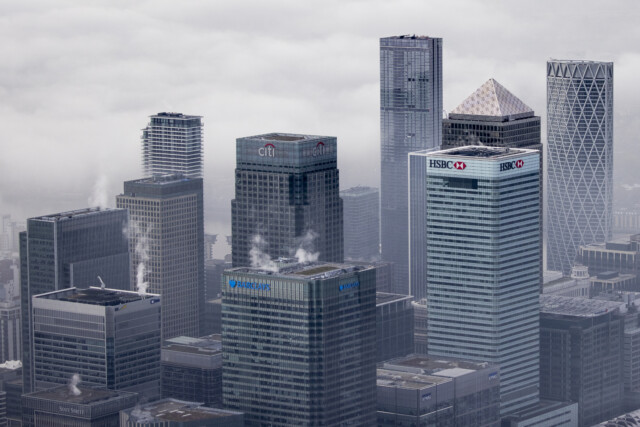
THE UK economy grew by 0.3% in January, latest figures from the Office for National Statistics (ONS) show.
The most recent Gross Domestic Product (GDP) data indicates the UK economy is on the up.
The UK economy grew by 0.3% in February, the ONS said.
GDP is a measure of the size of an economy – if it’s growing then it’s good news, if it’s shrinking then it’s bad news.
GDP remained at 0% in the three months to January though, the ONS said, meaning the economy missed a recession.
It comes after the UK economy narrowly avoided falling into a recession in December last year.
The ONS said the January boost came from the services sector, which grew by 0.5% after falling by 0.8% in December.
The largest contributions to growth came from the education, transport and storage, human health activities, and arts, entertainment and recreation sectors.
Meanwhile, the construction sector fell off by 1.7% in January after being flat in December.
What does it mean for my money?
A healthy economy is one that is growing so the latest figures should be good news for consumers.
However, commenting on today’s figures, Darren Morgan, director of economic statistics at the ONS, said while the economy partially bounced back since the end of last year, it’s not all good news.
He said: “Across the last three months as a whole and, indeed over the last 12 months, the economy has, though, showed zero growth.”
Alice Haine, personal finance analyst at Bestinvest, added: “GDP remaining flat in the three months to January 2023 is still a concern for household finances as it indicates companies are making less money, slashing investment and re-examining their staff requirements – something that could see the pace of pay rises slow or worse cause a spike in redundancies.”
What is a recession?
A country is in recession if there are two consecutive quarters of Gross Domestic Product (GDP) falling.
The year is split into four three-month quarters.
The economy fell off by 0.3% in the third quarter of 2022 but remained unchanged in the last one – which means a recession was avoided.
Recessions are bad news because it usually means jobs will be lost and wages will stall.
This, in turn, means the government gets less tax, which could mean cuts to public services and benefits. Tax rates might go up too.
The UK last went into recession in 2020 after the coronavirus pandemic hit, shutting down large parts of the economy.
Did you miss our previous article…
https://hellofaread.com/money/thousands-of-households-can-get-help-with-mortgage-bills-as-356000-to-fall-behind-on-payments-how-to-get-support/







